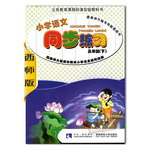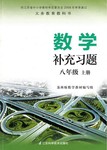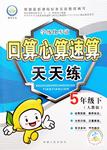
| 完形填空。 | ||||
| Steve and Mark were good friends. They decided to spend their vacation in Haiti. Since they 1 no French, they took a French word book with them and hoped it would help them in difficult situations. The flight was 2 , and the hotel was very comfortable. Each day after breakfast, Steve and Mark 3 a picnic lunch and dinner and went off to visit interesting places. After a while, the boys became tired of 4 picnic meals and decided to eat a big fish dinner in a good restaurant. Unfortunately, they 5 their word book in the hotel. They 6 the menu carefully. After ten minutes, Steve said to Mark: "I don't understand this menu." "Neither do I," said Mark. "I see poison on this menu. Are they 7 here?" "Maybe. They even spelled poison 8 . They spelled it p- o-s-s-o-n instead of p-o-i-s-o-n. But it 9 mean the same thing. Maybe we should go to another restaurant. I don't 10 to eat something that will kill me." But Mark was 11 , so he said:"There is no other restaurant near here, and I'm tired of walking around the city. Let's order something else instead. It's 12 here, so the food must be good. "The boys looked at the menu again. They finally decided to order steak, 13 they really wanted fish. The boys just pointed to the word steak, and the waiter 14 . As they were eating they 15 some tourists speaking English. "This 16 is delicious." "We're lucky we picked a restaurant that's famous for its fish." Steve and Mark wondered about what they 17 . "Famous for its fish? There was no fish on 18 !" said Mark. Finally, Steve decided to find out what all this was about. "Excuse me, how did you order fish when it wasn't on the menu?" "Sure it's on the menu. It's right here. Poisson." The boy shouted: "Poisson. That's 19 ! We were wondering why a restaurant like this could have poison on the menu." The tourists 20 . One of them said: "No. Poisson is French for fish." | ||||
|
 同步练习河南大学出版社系列答案
同步练习河南大学出版社系列答案 同步练习西南师范大学出版社系列答案
同步练习西南师范大学出版社系列答案 补充习题江苏系列答案
补充习题江苏系列答案 学练快车道口算心算速算天天练系列答案
学练快车道口算心算速算天天练系列答案科目:高中英语 来源:2010年普通高等学校招生全国统一考试广东卷英语模拟试题(2) 题型:完型填空
Ⅱ 语言知识及应用 (共两节。满分35分)
第一节完形填空 (共10小题;每小题2分,满分20分)
阅读下面短文,掌握其大意,然后从21—30各题所给的A、B、C和D项中,选出最佳选项,并在答题卡上将该项涂黑。
Being probably the most complex female character in Uncle Tom’s Cabin, Ophelia deserves special attention because she is treated as a substitute for Stowe’s intended audience. Ophelia 21 what Mrs Stowe, the author, considered a widespread Northern problem: the white person who opposes slavery but feels 22 prejudice and hatred in the presence of a black slave. Ophelia hates slavery, but she considers it almost 23 for blacks, against whom she harbors a deep-seated prejudice. And she doesn’t want them to touch her. Stowe stresses that much of Ophelia’s prejudice 24 from unfamiliarity and ignorance rather than from actual 25 . Because Ophelia has seldom spent time along with 26 , she finds them uncomfortably alien (不相容) to her.
But Ophelia seems to be one of the only characters in the novel whose character 27 as the story progresses. Once St. Clare puts Topsy in her care, Ophelia is forced to be in 28 with a slave. At first she begins to teach Topsy 29 out of duty. But Stowe suggests that duty alone will not root out slavery and that those against slavery must act out of love. Eva’s death leads to Ophelia’s change, and she comes to love Topsy as an actual human being and not just a slave. She 30 her racial prejudice and offers herself as a model to Stowe’s Northern readers.
21. A. reflects B. supposes C. suspects D. provides
22. A. various B. arbitrary C. racial D. awful
23. A. impossible B. necessary C. unfair D. important
24. A. suffers B. differs C. releases D. results
25. A. practice B. performance C. experience D. application
26. A. slaves B. readers C. Stowe D. characters
27. A. increases B. disappears C. refreshes D. develops
28. A. trouble B. danger C. contact D. comparison
29. A. hardly B. merely C. specially D. properly
30. A. hides B. overcomes C. reserves D. prohibits
查看答案和解析>>
科目:高中英语 来源:湖北省十三校2009---2010学年度高一下学期期中联考英语试题 题型:完型填空
第三节:完形填空(共20小题;每小题1.5分,满分30分)
阅读下面短文,掌握大意,然后从41-60各题所给的四个选项(A、B、C和D)中,选出最佳选项,并在答题卡上将该项涂黑。
At a young age, her doctor told Patti Wilson she was an epileptic(羊癫疯患者). Her father was a morning jogger. One day she 31 and said, “Daddy, what I’d really love to do is run with you every day, but I’m afraid I can’t do it.” Her father 32 her to start running.
That’s just what they did every 33 . It was a 34 experience for them. After a few weeks, Patti said, still smiling, “Daddy, what I’d really love to do is break the world’s long-distance running record for 35 .”
Her father 36 The Guinness Book of World Records and found that the farthest distance any woman had run was 80 miles. As a freshman(新生) in high school, Patti 37 , “I’m going to run from Orange County up to San Francisco(about 400 miles).” “As a sophomore(二年级学生),” she went 38 , “I’m going to run to Portland, Oregon(about 1,500 miles). As a junior I’ll run to St. Louis(about 2,000 miles). As a senior I’ll run to the White House (about 3,000 miles).”
In 39 of her disease, Patti was as ambitious(有野心的) as she was enthusiastic. She looked at being an epileptic as simply “an 40 ”. She focused not on what she had 41 , but on what she had left.
That year, together with her father, she completed her 42 to San Francisco wearing a T-shirt that 43 , “I love Epileptics.”
In her sophomore year, Patti’s classmates got behind her. They made a huge poster that read, “Run, Patti, Run!” This has since 44 her motto and the title of a book she has written. During this marathon, she broke a bone in her foot. A doctor told her that she had to 45 her run. But Patti said she wasn’t running for herself; she was 46 to break the chains on the brains that limited so many others. She asked the doctor 47 or not there was a way she could keep running. He said he could wrap it in adhesive(粘合剂) 48 putting it in a cast(石膏), but he 49 her that it would be extremely painful. She told the doctor to wrap it up.
Later, after four months of running from the West Coast to the East Coast, Patti arrived in Washington and shook the hand of the President of the United States. She told him, “I wanted people to know that epileptics are normal human beings with 50 lives.”
31. A. smiled B. cried C. laughed D. wept
32. A. agreed B. suggested C. encouraged D. promised
33. A. afternoon B. morning C. night D. evening
34. A. terrible B. fortunate C. dangerous D. wonderful
35. A. women B. men C. students D. patients
36. A. questioned B. checked C. inspected D. interviewed
37.A. broadcasted B. told C. informed D. announced
38. A. up B. forward C. on D. upon
39. A. honor B. view C. favor D. charge
40. A. accident B. coincidence C. influence D. inconvenience
41. A. lost B. dropped C. improved D. received
42. A. distance B. task C. run D. study
43. A. showed B. said C. wrote D. read
44. A. come B. become C. gone D. went
45. A. continue B. stop C. keep D. struggle
46. A. working B. jogging C. walking D. running
47. A. whether B. when C. if D. where
48. A. in addition to B. in spite of C. instead of D. regardless of
49. A. asked B. warned C. advised D. comforted
50. A. common B. unique C. special D. normal
查看答案和解析>>
科目:高中英语 来源:湖北省“94”联合体2009-2010学年高一下学期期中联考(英语) 题型:完型填空
完形填空(共20小题;每小题1.5分,满分30分)
阅读下面短文,掌握大意,然后从41-60各题所给的四个选项(A、B、C和D)中,选出最佳选项,并在答题卡上将该项涂黑。
At a young age, her doctor told Patti Wilson she was an epileptic(羊癫疯患者). Her father was a morning jogger. One day she 31 and said, “Daddy, what I’d really love to do is run with you every day, but I’m afraid I can’t do it.” Her father 32 her to start running.
That’s just what they did every 33 . It was a 34 experience for them. After a few weeks, Patti said, still smiling, “Daddy, what I’d really love to do is break the world’s long-distance running record for 35 .”
Her father 36 The Guinness Book of World Records and found that the farthest distance any woman had run was 80 miles. As a freshman(新生) in high school, Patti 37 , “I’m going to run from Orange County up to San Francisco(about 400 miles).” “As a sophomore(二年级学生),” she went 38 , “I’m going to run to Portland, Oregon(about 1,500 miles). As a junior I’ll run to St. Louis(about 2,000 miles). As a senior I’ll run to the White House (about 3,000 miles).”
In 39 of her disease, Patti was as ambitious(有野心的) as she was enthusiastic. She looked at being an epileptic as simply “an 40 ”. She focused not on what she had 41 , but on what she had left.
That year, together with her father, she completed her 42 to San Francisco wearing a T-shirt that 43 , “I love Epileptics.”
In her sophomore year, Patti’s classmates got behind her. They made a huge poster that read, “Run, Patti, Run!” This has since 44 her motto and the title of a book she has written. During this marathon, she broke a bone in her foot. A doctor told her that she had to 45 her run. But Patti said she wasn’t running for herself; she was 46 to break the chains on the brains that limited so many others. She asked the doctor 47 or not there was a way she could keep running. He said he could wrap it in adhesive(粘合剂) 48 putting it in a cast(石膏), but he 49 her that it would be extremely painful. She told the doctor to wrap it up.
Later, after four months of running from the West Coast to the East Coast, Patti arrived in Washington and shook the hand of the President of the United States. She told him, “I wanted people to know that epileptics are normal human beings with 50 lives.”
31. A. smiled B. cried C. laughed D. wept
32. A. agreed B. suggested C. encouraged D. promised
33. A. afternoon B. morning C. night D. evening
34. A. terrible B. fortunate C. dangerous D. wonderful
35. A. women B. men C. students D. patients
36. A. questioned B. checked C. inspected D. interviewed
37.A. broadcasted B. told C. informed D. announced
38. A. up B. forward C. on D. upon
39. A. honor B. view C. favor D. charge
40. A. accident B. coincidence C. influence D. inconvenience
41. A. lost B. dropped C. improved D. received
42. A. distance B. task C. run D. study
43. A. showed B. said C. wrote D. read
44. A. come B. become C. gone D. went
45. A. continue B. stop C. keep D. struggle
46. A. working B. jogging C. walking D. running
47. A. whether B. when C. if D. where
48. A. in addition to B. in spite of C. instead of D. regardless of
49. A. asked B. warned C. advised D. comforted
50. A. common B. unique C. special D. normal
查看答案和解析>>
科目:高中英语 来源:江苏省2010届高三第三次模拟英语试题 题型:完形填空
第二节:完形填空(共20小题;每小题1分,满分20分)
请认真阅读下面各题,从题中所给的A、B、C、D四个选项中,选出最佳选项,并在答题卡上将该项涂黑。
The Conservative Party leader David Cameron has been elected British Prime Minister. Labor Party’s Gordon Brown, the 36 Prime Minister, had to 37 the tears as he said his goodbyes outside of 10 Downing St. And Cameron is the youngest UK prime minister in almost 200 years.
According to electoral rules, the leader of the party that wins a majority in Parliament becomes the new prime minister and forms the new government. If no party wins a majority, a coalition (联合) government 38 several parties may be formed. The head of the coalition party that 39 most seats in parliament probably becomes the new prime minister.
In Britain’s May 6 parliamentary 40 , Cameron’s Conservative Party won the most seats, but did not get a majority. After negotiations, with an agreement 41 between the Conservatives and the third-placed Liberal Democrats, a governing coalition was formed. [来源:ZXXK]
Cameron has grown 42 a shy primary school student with 43 school reports into a famous political 44 . He is reportedly a 45 of King William IV (1765 –1837). Cameron studied at the elite Eton College, for centuries the school 46 the choice for the nation’s wealthiest people to send their male children to. He went 47 to Oxford University, where he graduated with a degree in philosophy, politics and economics.
Once at primary school, Cameron had the poorest school report in the class. At Eton, Cameron was a problem boy. In 1983, he was suspected of taking drugs. He was punished, and 48 ordered to copy 500 lines of Latin text. He 49 the incident and worked harder.
Cameron was very 50 at Oxford. He captained the tennis team there. He was a member of a dining society. After graduation, he 51 politics. In 2001 Cameron became a member of Parliament and in 2005, at the age of 38, was elected the leader of the Conservative Party.
Now he has been elected the head of a country 52 deep economic troubles. At least 1.3 million people have been 53 in the serious financial crisis. British voters will be looking to see 54 the program his party has proposed to deal with the problem 55 do anything to help.
36. A. latest B. current C. former D. latter
37. A. hold back B. hold off C. hold on D. hold out
38. A. is made up of B. consisting of C. is composed of D. makes up of
39. A. holds B. takes C. includes D. contains
40. A. selection B. election C. conference D. negotiation
41. A. reached B. arriving at C. coming to D. establishing
42. A. with B. of C. from D. for
43. A. excellent B. poor C. average D. outstanding
44. A. people B. character C. image D. figure
45. A. son B. grandson C. relative D. descendent
46. A. is B. has been C. had been D. being
47. A. on B. up C. down D. out
48. A. otherwise B. therefore C. nevertheless D. however
49. A. survived from B. recovered from C. benefited from D. changing from
50. A. silent B. positive C. active D. enthusiastic
51. A. took to B. toot after C. took off D. took over
52. A. faced B. facing with C. faced with D. faces
53. A. laid off B. laid down C. laid aside D. laid out
54. A. that B. what C. if D. how
55. A. can B. should C. must D. need
查看答案和解析>>
科目:高中英语 来源:广东省湛江市2010届高三5月月考英语试题 题型:完形填空
Ⅱ 语言知识及应用 (共两节。满分35分)
第一节 完形填空 (共10小题;每小题2分,满分20分)
阅读下面短文,掌握其大意,然后从21—30各题所给的A、B、C和D项中,选出最佳选项,并在答题卡上将该项涂黑。
Being probably the most complex female character in Uncle Tom’s Cabin, Ophelia deserves special attention because she is treated as a substitute for Stowe’s intended audience. Ophelia __21_ what Mrs. Stowe, the author, considered a widespread Northern problem: the white person who opposes slavery but feels __22_ prejudice and hatred in the presence of a black slave. Ophelia hates slavery, but she considers it almost _23__ for blacks, against whom she harbors a deep-seated prejudice. And she doesn’t want them to touch her. Stowe stresses that much of Ophelia’s prejudice _24__ from unfamiliarity and ignorance rather than from actual _25__ Because Ophelia has seldom spent time along with __26_, she finds them uncomfortably alien (不相容) to her.
But Ophelia seems to be one of the only characters in the novel whose character _27__ as the story progresses. Once St. Clare puts Topsy in her care, Ophelia is forced to be in _28__ with a slave. At first she begins to teach Topsy __29_ out of duty. But Stowe suggests that duty alone will not root out slavery and that those against slavery must act out of love. Eva’s death leads to Ophelia’s change, and she comes to love Topsy as an actual human being and not just a slave. She _30__ her racial prejudice and offers herself as a model to Stowe’s Northern readers.
21. A. reflects B. supposes C. suspects D. provides
22. A. various B. arbitrary C. racial D. awful
23. A. impossible B. necessary C. unfair D. important
24. A. suffers B. differs C. releases D. results
25. A. practice B. performance C. experience D. application
26. A. slaves B. readers C. Stowe D. characters
27. A. increases B. disappears C. refreshes D. develops
28. A. trouble B. danger C. contact D. comparison
29. A. hardly B. merely C. specially D. properly
30. A. hides B. overcomes C. reserves D. prohibits
查看答案和解析>>
湖北省互联网违法和不良信息举报平台 | 网上有害信息举报专区 | 电信诈骗举报专区 | 涉历史虚无主义有害信息举报专区 | 涉企侵权举报专区
违法和不良信息举报电话:027-86699610 举报邮箱:58377363@163.com